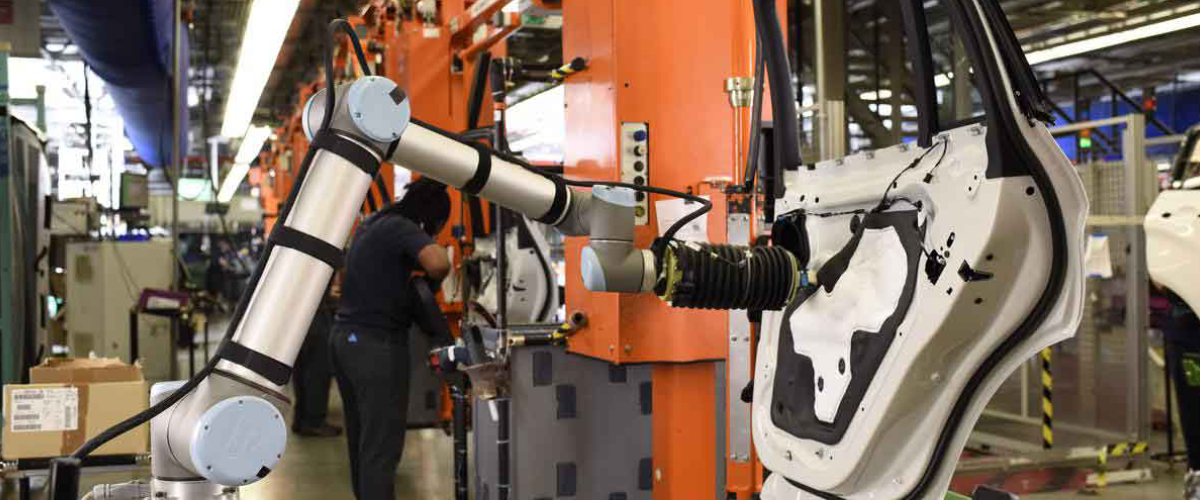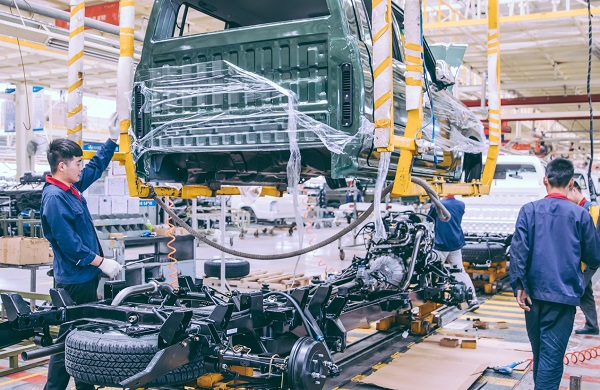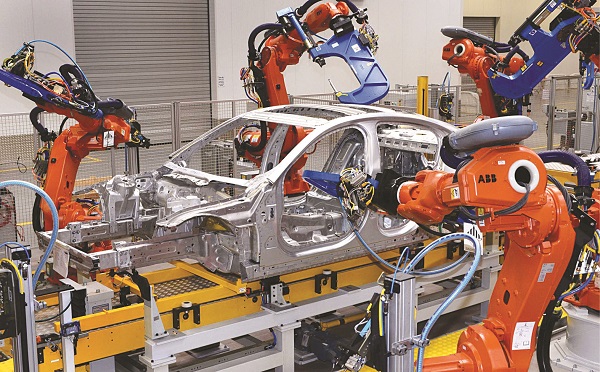
Robotics and its antiquities have always been well bonded with the industry of automation. In the year 1962, it was General Motors who primarily installed industrial robots. Thus, from the year 1970, almost all industrial automotive companies were categorized by the wide-ranging usage of huge robots in their line of production and manufacture. Presently, there are numerous updates along within the automation line with customers demanding a whole lot of customization in their products. This thus hinders the mass production making it go smaller in size. Demand for customization demands for accuracy, efficacy, and litheness. These 3 factors become the key to their success. However, flexibility does not fall under the category of main key factor as industrial robots stay put in one place doing one work. Thus manufacturing industries brought in the use of collaborative robots or also known as Cobots.
Cobots Determine the Key Developments in the Automotive Industry
Cobots or Collaborative Robots have reached a level where they have become a key factor in the Automotive Industry. The most important and advantageous aspect of Cobots is its ability to be flexible. This aspect not only becomes an extra hand in the manufacturing units of the automotive industry but also creates a very safe and secure workspace to work alongside humans. This thus achieves a major increase in production and also improves work efficiency. Cobots can be handled easily and also provides features that help protect their human colleagues.

Manufacturers have embraced the policy of service so as to make Cobots more manageable. This, in turn, allows start-ups and small-scale industries to also be more adaptable when it comes to introducing Cobots in their workspace. This policy also makes them cost-efficient for industries to invest in.
Cobots can Handle Detrimental Duties Easily
Flexibility is the key that every automotive manufacturer looks into when it comes to productivity and business growth. Thus collaborating Cobots as part of their manufacturing unit thus led companies to attain the same with much more feasibility. Cobots opened an all-new path where the most strenuous and jobs causing ill-health to employees could be passed on to them. Companies like Bajaj Auto Ltd. in early 2010 realized the need for such factors and took the step to introduce the use of Cobots in their company. Their aim was to standardize the process of production and also to fulfill the challenges faced from jobs performed physically. Assembling a two-wheeler was a high intense task and physically challenging. This reason led to the launch of more than 100 Cobots working in their line of manufacturing and production. Workers are pleased and the company is happy with the standardization in both the quality and efficiency of work that took place. The employees find it very cohesive to work in and around these Cobots.
Benefits of Cobots in Automotive Industry
Competition in the line of every work is growing day-by-day thus businesses need to be on their toes when it comes to technology. Cobots play a major role in increasing efficiency to businesses and also many other added advantages.Check Out – the benefits of cobots in automotive industry.

- Cobots provide Healthier Human Interaction and Competence
Having a Cobot setup in industries provide robot-human interaction where they share the same workspace and are able to work with each other with no safety measures to be worried about. This thus increases competence in a huge way.
- Best suited for SMEs
Robot-based is but natural in large scale industries with more production volumetrically but SMEs most of the times retain human labor due to cost. But this is completely nullified when it comes to Cobots. They only require a small workspace and due to their flexibility to adapt and adjust, they can be easily incorporated. Cobots easily manage jobs like shaping, polishing, cutting, sanding, lifting and packaging and these are the most useful for small and medium scale industries.
- Safety is no more a great concern
Keeping collaboration and interaction with humans under consideration the design of Cobots have been made. Thus after production, each Cobots are checked for their safety features before they are put on the field for work. Cobots provide the best safety alongside humans providing better robot-human interaction and ensuring fewer errors from happening.
Thus automation in the manufacturing line is unavoidable. With Cobots, both robots and human work with each other sharing the same workspace. Within the year 2020, Cobots industry is believed to be moving towards having rapid growth and demand in the automation and many more industries.





